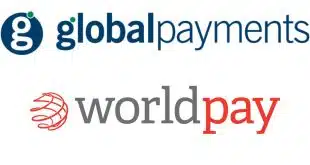Facebook Inc. has just done the equivalent of dumping the euro in favor of national currencies with its new policy that will phase out the Facebook Credits virtual currency. The huge social network, which also is introducing a way to pay for subscriptions, says the changes will simplify the user experience and help application developers using the Facebook platform reach new customers globally. But the changes also cast doubt on Facebook’s reputation as an aspiring payments player.
n
The changes announced Tuesday come just 11 months after Facebook mandated that third-party developers on its platform use Facebook Credits as their virtual currency, which seemed to stamp the 900-million-member network as the next big payments firm. “It does seem unusual,” says Beth Robertson, director of payments research at Javelin Strategy and Research, Pleasanton, Calif. “There may be a lot more going on here that we don’t know.”
n
One thing that won’t change is Facebook’s current 30% cut of the revenues for virtual goods in social games purchased through Facebook.
n
Menlo Park, Calif.-based Facebook announced the changes on its blog for app developers. In the post, Facebook noted that most virtual games have introduced their own virtual currencies since Facebook Credits debuted in 2009, reducing the need for a platform-wide virtual currency. Thus, Facebook says it will begin supporting pricing in local currencies such as the U.S. dollar, British pound, or Japanese yen beginning in the third quarter, and all apps will be required to use local currencies by the end of the year. Any apps currently using only Facebook Credits will have to develop their own virtual currencies that can be bought in local, real-world currencies.
n
“By supporting pricing in local currency, we hope to simplify the purchase experience, give you [application developers] more flexibility, and make it easier to reach a global audience of Facebook users who want a way to pay for your apps and games in their local currency,” says the post from Prashant Fuloria, product management director. “With local pricing, you will be able to set more granular and consistent prices for non-U.S. users and price the same item differently on a market-by-market basis.”
n
The post said most purchasers on the network already see items priced in their local currency during the payments flow. (In the U.S., one Facebook Credit costs 10 cents, though Credits often are sold at lower promotional rates.) Facebook will convert any Facebook Credits balances into the equivalent amount of value in users’ local currency, which they can spend on in-app items in the same way they do now. Network members also can still redeem gift cards and store unused balances in their accounts, Facebook said.
n
The new subscription capabilities, meanwhile, will enable developers to generate recurring revenues from their products rather than only one-time purchases. The feature will be available through Facebook.com and mobile Web apps next month. Zynga Inc., the largest third-party developer on Facebook, and another game developer, Kixeye, are testing the subscription service.
n
San Francisco-based Zynga, developer of FarmVille and other popular games on Facebook, issued a statement saying it supports any improvement to Facebook’s platform that makes it easier to for members to play games and buy virtual goods. “We believe Facebook’s new payment product to support pricing in local currency will streamline payment methods on their platform and ultimately offer more flexible pricing options,” Zynga said. “And, while it’s early days, we are looking forward to be bringing players more options to engage in our games through our subscription model and have already begun testing subscriptions in a number of our games on Facebook.”
n
Zynga’s financial fortunes are closely tied to Facebook, which in turn gets most of its payments revenue through Zynga games. Both companies are trying to get game players, most of whom can play for free, to buy virtual weapons, tools, and other items. Digital Transactions News estimated before Facebook’s IPO last month that only about 2% of Zynga’s players buy virtual goods. Zynga, which has a virtual currency called zCoins, said it would have more to say about how Facebook’s changes will affect it when the company reports its second-quarter earnings July 23.
n
Besides its publicly stated reasons, another motivation for Facebook’s changes may be pressure to reduce payments-related costs, says Javelin’s Robertson. She notes that the U.S. Treasury Department’s anti-money-laundering unit, the Financial Crimes Enforcement Network or FinCen, has changed its definition of a money-transmitter service to potentially include services handling virtual currency. “That would mean higher potential compliance expenses,” she says. E-commerce companies often need money-transmitter licenses from national or even state governments. A Facebook spokesperson did not respond to a Digital Transactions News request for comment.
n
Third-party developers also have grumbled about Facebook’s 30% take on transactions. Robertson says the network may have concluded that it would be easier to attract new developers to its platform while maintaining the 30% cut if it abandoned its own currency.





